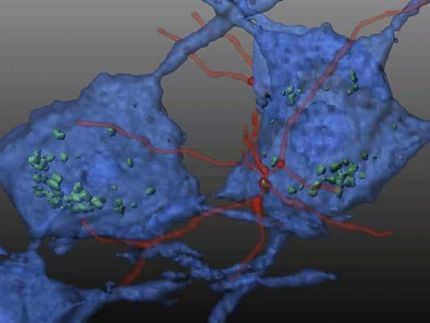VIB and UZ-K.U.Leuven join forces and bring state-of-the-art technology to Flanders
Genome research can now be done 100 times faster
Advertisement
Flemish biotechnologists have a world-wide reputation for deciphering genetic code. In order to further strengthen this leading position, two Flemish research institutes are joining forces and bringing new technology to Flanders which will record DNA 100 times faster than current methods. This is an essential asset as these DNA analyses hold the key to the decipherment and treatment of genetic disorders and illnesses such as cancer.
We know the broad outline of human DNA, and scientists are now determining the DNA differences between people. These differences characterise the diversity of people but they also hold the key to a higher risk for genetic disorders such as dementia, psychosis, diseases of the heart and blood vessels, and cancer. If we know and understand the differences, we can also use them as the foundation for new treatments. However, to record these differences efficiently, it is essential that everything moves much faster than the current technology allows. This has now become possible. So-called 'new generation' sequence technology has recently been developed, but it is still very expensive.
Nevertheless, VIB and UZ.-K.U. Leuven have joined forces to give Flemish scientists access to this state-of-the-art technology. Via a co-ordinated investment program, they are bringing Roche's DNA sequence technology platform, the so-called 454 sequencing, to Flanders.
This technique provides an ingenious manner to super-efficiently decipher DNA code. DNA fragments are isolated in drops of water, which function as micro-reactors. Using these pieces of DNA, 10 million identical copies are made and they are simultaneously (but individually) sequenced. This is all done on a tablet the size of a credit card which contains 1.6 million little holes in which sequence reactions are generated. Seven hours later, the DNA sequences are produced by the computer, thereby rendering a wealth of data. This technology has the advantage of producing large parts of sequences from the genomes that are to be recorded, which benefits not only the speed but also the accuracy of the information. In short, the larger the pieces of the puzzle, the quicker and more precise the image of the entire picture. Determining sequences can now be done 100 times faster than the technologies which are currently being used.
In order to make optimal use of these substantial investments, VIB and UZ-K.U.Leuven are mutually coordinating activities on both units. Both parties will exchange expertise and will make capacity available to one another. In addition, VIB and UZ-K.U.Leuven will be able to grant Flemish researchers from other centers access to this technology via this platform.



























































